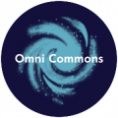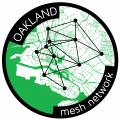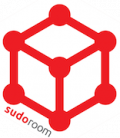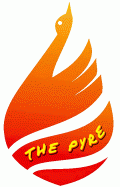|
|
The following was initially a comment on danah boyd’s recent post discussing Facebook’s “slippery slope” of betraying its users, most recently with Project Beacon. Please share your thoughts if you have them!
“Trusting Facebook users” are generally older folk- I think they’re more open to publicizing their online profiles because they’re seeking to make connections, they’re gaining from the public exposure and excited by all the novel possibilities. My ethnography of social networking sites primarily re/presents the voices of college students- particularly veteran Facebook users. The site started out as being a great little niche environment, so people could exchange intimate messages and upload photos from that crazy party where everyone was on a ton of drugs and so on. Then it opened up, everyone was pissed, and that’s when attitudes toward Facebook started to shift.
Most first-generation Facebookers have some degree of distrust/disgust for the site, often a great deal of it. Yet they continue to use it because it’s become so firmly integrated into campus social life- it’s a way to easily invite people to parties and share photos from said parties, to visually organize one’s social network and keep track of alumni and old high school buddies, to find out the sexuality or relationship status of that boy you’ve been admiring from afar. It’s crucial. If you’re not on Facebook, you’re going to be somewhat out of the loop.
Such important social practices generally take precedence over the egregious invasions of privacy that most are highly suspicious of. The trend is not abandoning Facebook- it’s far too useful. However, the site’s reputation is definitely tainted, and some Facebookers are using the site to form or join groups that promote awareness of Facebook’s privacy policies and petition for change. Most, however, are simply becoming more savvy and protective of their online personas; it’s become increasingly common for me to be unable to access the profiles of those I’m not friends with because of that practice. Others have simply taken to deleting much of their profiles, leaving just an e-mail address, a witty or ironic comment, and maybe a funny picture. There’s also a huge trend to apathetically accept that nothing can be done about it, much like how a lot of young people feel about our government.
Again, these are just observations of the changing attitudes among a specific subset of Facebook users. They know what’s going on (though I would say that only the Tech-savvy blog-readers have even heard about Project Beacon- but they know their information is being used for capitalist endeavors), they’re disgruntled that so much of what they do on Facebook is publicly broadcast and forever archived. Regardless of how they talk about it, however, they’re still using it regularly for everyday social practices. For many, it’s become as habitual to check Facebook as it is to check e-mail.
salvation from this salvaged self-
i did alright, you did enough,
disembodied gestures yet garner pulchritude.
tis i who refuse the sooth
-sayer, i flay her!
dice her finely and saute her.
oh, so it goes,
add in a handful of toes.
I am constantly reworking the whole. Truth be told, things have never been so gooey. I recommend clicking.
The past six weeks have been spent throwing myself into the writing of my thesis. Currently, I have 53 pages of solid writing, and in the process have discovered an emergent structure that belies that which I’d previously been naively imposing on myself. It has become clear to me that I am able to provide a kind of phenomenological perspective that is notably absent from much of the preexisting literature on computer-mediated communication, generally, and online social networks, particularly.
I have found a lot of journalism, a lot of psychology, a lot of sociology, and various intersections of the three. Don’t get me wrong, there is some great research out there, but the vast majority is either biased to some degree (not that there is such a thing as being unbiased, but that’s a whole other post) or somewhat dehumanizing, Anthropology, in contrast, is the analysis of individual voices and perspectives that make up webs of meaning and power. Humanism and science spring forth and coalesce! But I digress: in tandem with the written thesis, I am also creating a website. A website that is both a blog (this blog) as well as a wiki, so as to better articulate a) my personal ethnographic and research process, and b) the various media sources involved in the construction of my knowledge (images, blogs, videos, online articles, public forums, the sites themselves, etc;).
By the way, if anyone reading this has any career advice, throw me a bone!
sing: i will swallow your sadness and eat your cold clay
just to lift your long face
-joanna newsom
buoyant abeyance of disbelief,
blend me beautiful!
a ferocity to be fortified
in the quietude of the lonely night,
all trembling and fear are less now than sweet solace.
oh, call it off!
call it caw-cacophony!
it shall be ended.
stripped, strung and suspended,
marrow from the bone.
sucked out like poison from the wound,
emergence from the wilting womb.
For those of you who think “Facebook Activism” is only good for whining about the company’s latest invasions of your privacy, or expressing support for Stephen Colbert’s “presidential race,” check it:
Over 270,000 Facebook members, mostly Central American youths, have joined a group called “One Million Voices Against FARC,” which was established one month ago. The group leaders organized a rally, using Facebook as a means to gather support both within Columbia as well as globally. This past Monday, between 500,000 and 2 million Columbians marched in the streets, with thousands joining them in over 133 countries worldwide.
FARC, which in English stands for the Revolutionary Armed Forces of Columbia-People’s Army, considers itself to be a guerilla movement for Columbian communism. Most of the rest of the world, including Columbia, prefers the term “terrorist organization”. The movement is specifically geared toward halting the ubiquitous kidnapping tactics employed by FARC, claiming that thousands have been wrongly imprisoned by the group for over a decade.
Nevertheless, some Columbians feel that the movement may serve only to polarize the country. Though they acknowledge the importance of standing up to unethical practices such as kidnapping, protesting FARC itself is a bit more nuanced. From The Christian Science Monitor:
“While few Colombians support the Marxist insurgent army that has been fighting the Colombian state for more than 40 years, many people are uncomfortable with the message of Monday’s rally. They would prefer a broader slogan against kidnapping and in favor of peace and of negotiations between the government and the rebels to exchange hostages for jailed rebels. The leftist Polo Democratico Party said it will hold a rally in Bogotá in favor of a negotiation but would not march. Some senators say they will march against Venezuelan President Hugo Chávez, and other participants say they will be marching in favor of Colombian President Alvaro Uribe.”
The group’s discussion board is probably the best insight into the myriad issues and sentiments the struggle evokes amongst Central and South American youth, reflecting struggles against racism, classism, and corrupt governments. Thanks to Claire-bear for keeping her finger on the pulse of Free Speech Radio!
Both MySpace and Facebook have become important sites for political campaigning. In 2006, Facebook launched a feature called Election Pulse, enabling members to indicate which candidates they support, learn about and discuss political issues, and gauge how candidates are faring among Facebookers through polls organized by state. MySpace, in turn, recently launched Impact Channel, fulfilling essentially the same functions as its Facebook counterpart but reaching an even greater audience. Furthermore, the Channel is heavily video-oriented, featuring a series of dialogues with the candidates in collaboration with MTV Networks. Visitors to the site are able to submit videos of themselves asking questions of the candidates, promoting a sense of being directly involved in political democracy. Similar collaborative endeavors between network television and online social networks include the YouTube/CNN presidential debate in June of 2007 and the Facebook/ABC presidential debate in January of 2008.
As the 2008 presidential election approaches, candidates have been rushing to capture the elusive yet desirable youth vote. Unsurprisingly, the Democratic party has been considerably more effective with its use of new social media to drive campaigns. In a recent CNN article, a Republican pollster is quoted as saying: “Our party is really behind in learning how to maximize this and use it to our best benefit. We were very proactive in learning how to use talk radio. When it comes to the Internet, especially social networking sites, we’re really behind.” On MySpace, Barack Obama leads the popularity contest with over 240,000 Friends- not counting the thousands of friends who link to alternate Obama profiles created to represent each individual state in the U.S. His profile consists of a regularly-updated blog, YouTube videos of his past speeches, links to further information, photographs, podcasts, and various buttons linking to his other “online habitats” on sites such as YouTube, Facebook, and LinkedIn.
Such practices serve to humanize politicians and breach the disconnect felt by voters, and are particularly oriented toward the purportedly politically apathetic youth generation of the United States today. Members of online social networks, in turn, have begun utilizing the sites to display their support for particular candidates on their profiles (much like bumper stickers), research and discuss political issues, and run local campaigns in the form of Groups. For the record, I support Obama. And Kucinich.
The music I describe in this post is best experienced as an accompaniment to heightened sensory awareness. I recommend dark chocolate, red wine, and etceterta; Clicking on the album names will lead you to the album’s page at AllMusic.com. Oh, and if the word “experimental,” or, worse yet, “glitch” turns you off, you can stop reading now.
 The first time I truly listened to Vladislav Delay, my boyfriend and I let the album recycle all night long. At times I felt my brain unzipping? at other times, simply hypnotized… It lent a seamless metallic, drippy atmosphere to the night, which was rife with some of the most rich and visceral dreams I’ve had in months. I suppose that description doesn’t sound entirely inviting, but I highly recommend the album to anyone who likes having soundtracks to the negative space of … infinitude, or something like that. The first time I truly listened to Vladislav Delay, my boyfriend and I let the album recycle all night long. At times I felt my brain unzipping? at other times, simply hypnotized… It lent a seamless metallic, drippy atmosphere to the night, which was rife with some of the most rich and visceral dreams I’ve had in months. I suppose that description doesn’t sound entirely inviting, but I highly recommend the album to anyone who likes having soundtracks to the negative space of … infinitude, or something like that.
Released in 2007, Whistleblower is the latest brainchild of Finnish producer Sasu Ripatti. Clicks and cuts never sounded so spooky yet somehow soothing. This is my current favorite album to play while writing the nights away…
 Above, I very nearly described Whistleblower as glitchy… but that word immediately evoked another, different kind of glitchy glory… Cavalcade of Glee and Dadaist Happy Hardcore Pom Poms (Venetian Snares!) is aptly named, indeed- innovative breakcore that soars from break-neck to mind-melting speeds, twisting and smashing into things as it goes. Above, I very nearly described Whistleblower as glitchy… but that word immediately evoked another, different kind of glitchy glory… Cavalcade of Glee and Dadaist Happy Hardcore Pom Poms (Venetian Snares!) is aptly named, indeed- innovative breakcore that soars from break-neck to mind-melting speeds, twisting and smashing into things as it goes.
My favorite track on the album is easily ‘Pwntendo,’ which as you might imagine sounds like Yoshi got into the Sugar Frosted Crack. A little nutty, for sure. I like my music extra-crunchy.
*bleep* *whir* *skitter* One up!
In 1991, Hakim Bey published a work entitled TAZ: Temporary Autonomous Zone, Ontological Anarchy, and Poetic Terrorism. The TAZ is essentially that liminal space that exists on the edges of things, the moments that allow for true creativity that occur outside of the hierarchical structures of society and information. True freedom and empowerment is found only in these moments. Though we often conceive of the Internet as a liminal space in which structural hierarchies are dissembled, Bey differentiates between “the Net” as the hierarchical structures of information flow, and the “counter-Net”, which are those clandestine and rebellious practices that subvert this hierarchy (think music downloading…). The “Web”, then, enables open and horizontal patterns of information flow. Together, the three comprise the system that make up the Internet. Some great questions are posed- I’ve excerpted my favorite bit below:
“Also I am not impressed by the sort of information and services proffered by contemporary “radical” networks. Somewhere–one is told–there exists an “information economy.” Maybe so; but the info being traded over the “alternative” BBSs seems to consist entirely of chitchat and techie-talk. Is this an economy? or merely a pastime for enthusiasts? OK, PCs have created yet another “print revolution”–OK, marginal webworks are evolving–OK, I can now carry on six phone conversations at once. But what difference has this made in my ordinary life?
Frankly, I already had plenty of data to enrich my perceptions, what with books, movies, TV, theater, telephones, the U.S. Postal Service, altered states of consciousness, and so on. Do I really need a PC in order to obtain yet more such data? You offer me secret information? Well…perhaps I’m tempted–but still I demand marvelous secrets, not just unlisted telephone numbers or the trivia of cops and politicians. Most of all I want computers to provide me with information linked to real goods–“the good things in life,” as the IWW Preamble puts it. And here, since I’m accusing the hackers and BBSers of irritating intellectual vagueness, I must myself descend from the baroque clouds of Theory & Critique and explain what I mean by “real goods.”
Let’s say that for both political and personal reasons I desire good food, better than I can obtain from Capitalism– unpolluted food still blessed with strong and natural flavors. To complicate the game imagine that the food I crave is illegal–raw milk perhaps, or the exquisite Cuban fruit mamey, which cannot be imported fresh into the U.S. because its seed is hallucinogenic (or so I’m told). I am not a farmer. Let’s pretend I’m an importer of rare perfumes and aphrodisiacs, and sharpen the play by assuming most of my stock is also illegal. Or maybe I only want to trade word processing services for organic turnips, but refuse to report the transaction to the IRS (as required by law, believe it or not). Or maybe I want to meet other humans for consensual but illegal acts of mutual pleasure (this has actually been tried, but all the hard-sex BBSs have been busted–and what use is an underground with lousy security?). In short, assume that I’m fed up with mere information, the ghost in the machine. According to you, computers should already be quite capable of facilitating my desires for food, drugs, sex, tax evasion. So what’s the matter? Why isn’t it happening?
The TAZ has occurred, is occurring, and will occur with or without the computer. But for the TAZ to reach its full potential it must become less a matter of spontaneous combustion and more a matter of “islands in the Net.” The Net, or rather the counter-Net, assumes the promise of an integral aspect of the TAZ, an addition that will multiply its potential, a “quantum jump” (odd how this expression has come to mean a big leap) in complexity and significance. The TAZ must now exist within a world of pure space, the world of the senses. Liminal, even evanescent, the TAZ must combine information and desire in order to fulfill its adventure (its “happening” , in order to fill itself to the borders of its destiny, to saturate itself with its own becoming. , in order to fill itself to the borders of its destiny, to saturate itself with its own becoming.
Perhaps the Neo-Paleolithic School are correct when they assert that all forms of alienation and mediation must be destroyed or abandoned before our goals can be realized–or perhaps true anarchy will be realized only in Outer Space, as some futuro-libertarians assert. But the TAZ does not concern itself very much with “was” or “will be.” The TAZ is interested in results, successful raids on consensus reality, breakthroughs into more intense and more abundant life. If the computer cannot be used in this project, then the computer will have to be overcome. My intuition however suggests that the counter-Net is already coming into being, perhaps already exists–but I cannot prove it. I’ve based the theory of the TAZ in large part on this intuition. Of course the Web also involves non-computerized networks of exchange such as samizdat, the black market, etc.–but the full potential of non-hierarchic information networking logically leads to the computer as the tool par excellence. Now I’m waiting for the hackers to prove I’m right, that my intuition is valid. Where are my turnips?”
|
|





 The first time I truly listened to Vladislav Delay, my boyfriend and I let the album recycle all night long. At times I felt my brain unzipping? at other times, simply hypnotized… It lent a seamless metallic, drippy atmosphere to the night, which was rife with some of the most rich and visceral dreams I’ve had in months. I suppose that description doesn’t sound entirely inviting, but I highly recommend the album to anyone who likes having soundtracks to the negative space of … infinitude, or something like that.
The first time I truly listened to Vladislav Delay, my boyfriend and I let the album recycle all night long. At times I felt my brain unzipping? at other times, simply hypnotized… It lent a seamless metallic, drippy atmosphere to the night, which was rife with some of the most rich and visceral dreams I’ve had in months. I suppose that description doesn’t sound entirely inviting, but I highly recommend the album to anyone who likes having soundtracks to the negative space of … infinitude, or something like that. Above, I very nearly described Whistleblower as glitchy… but that word immediately evoked another, different kind of glitchy glory…
Above, I very nearly described Whistleblower as glitchy… but that word immediately evoked another, different kind of glitchy glory…  , in order to fill itself to the borders of its destiny, to saturate itself with its own becoming.
, in order to fill itself to the borders of its destiny, to saturate itself with its own becoming.